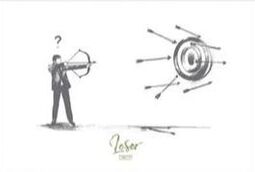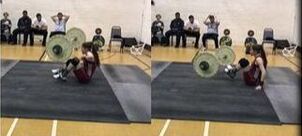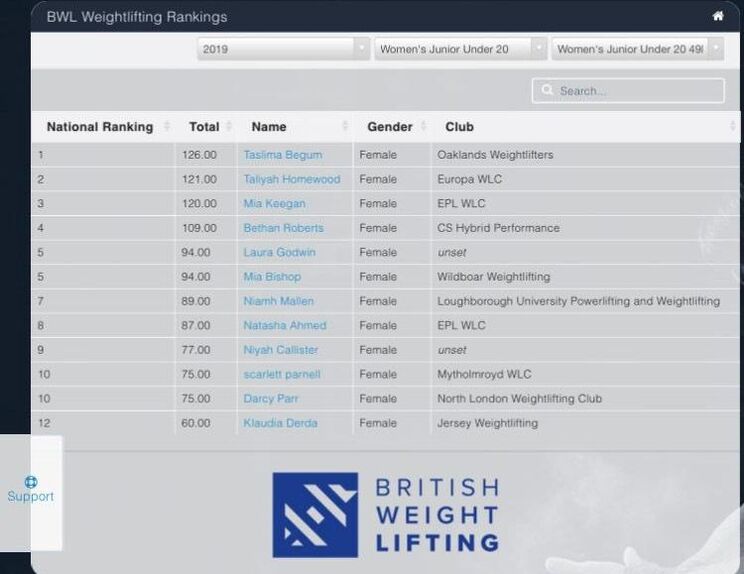AuthorA 20 year old fitness enthusiast and dedicated Olympic style weightlifter. I am a Level 2 Weightlifting coach, Powerlifter, and non-competitive Irish dancer. I'm determined to live a healthier lifestyle and take care of my body whilst influencing other young people to do so. I never doubt my ability to achieve something; I just change what I'm doing until I succeed. Archives
May 2021
|
Back to Blog
 I'm back again! Yes I keep on having extended breaks which seem to contradict my post about balancing school and sport. I guess it also comes down to my initial motivation to actually sit down for a few hours to write a post. Within the past month and a bit, I have sat two A-level equivalent exams and competed in two Olympic Weightlifting competitions (Manchester club comp and the British u17, juniors and u23's). I just came back from my holiday last Wednesday, I went to Formentera (an island about an hour away from Ibiza) and took a needed week off from lifting. This giving me the chance to write myself a new 5-week program (6 weeks being too long, 4 weeks being too short), which aims to be repeated multiple times before my next Olympic Weightlifting and Powerlifting competition. Meaning, it's time to get strong. Before I took this week off, I'd been experiencing more failures than usual within my training and within the British competition. Please continue to read to hear about these experiences of mine and how you can actually distinguish a failure within any sport. What is failure and what is attribution?The Google definition of failure states 'lack of success' or 'the neglect or omission of expected or required action'. Relating this back into a sporting context, I would define failure as being 'unable to complete an action that is expected or needed in order to gain a personal advantage or benefit, due to a personal fault'. For example, if a Weightlifter was to go out onto the platform and their first Snatch lift was failed by the referees. It would be because of the fault they completed, e.g. they fell onto their knees at the bottom of the squat due to loss of balance and stability. The Google definition of attribution states 'the action of regarding something as being caused by a person or thing'. Relating this back into a sporting context, I would define attribution as 'pushing the blame from yourself onto another aspect of what made you make the mistake or fault'. For example, if a Weightlifter was to go out onto a slightly uneven platform and their first Snatch lift was failed by the referees. It would be because of the fault they completed, e.g. they fell onto their knees at the bottom of the squat. But they may say 'the platform made me fail the lift'. It would be the same for any noise distractions in which the blame can be shifted from the lifter onto this. Attribution is not different from failure, it is a part of failure that involves shifting the blame of the fail onto something else. Why do we fail? Failure can be the cause of many personal characteristics. In this sense it may involve a person's technique, sporting characteristics (e.g. strength and power levels), fatigue, dietary intake, limits, habits, and psychological issues (the competition, how much the lift or point matters, how much weight you are lifting). This could also involve slight attribution, but the environment surrounding a lifter can have an impact upon their likelihood to fail, this relating into psychological issues. For example, a lively competition environment could make a person fail if they are quiet, anxious or used to a quieter environment in training. However, this same environment could boost a person to perform and compete better due to added pressure felt psychologically. This partially links into one of my previous posts about Nature vs Nurture, this is linked below. Why is attribution used?Attribution is often used by Weightlifters (and athletes) to put off the thought of a mistake they have made until later when it can be processed. This is usually encouraged and supported verbally by coaches, family and friends (unless of course you are really blunt and you straight up tell the person that it was their fault and NOT in fact anything else that caused the mistake). This is important so listen up! ATTRIBUTION IS A GOOD THING TO REMOVE PSYCHOLOGICAL BARRIERS TO PERFORMANCE. Imagine this: A Weightlifter fails there first lift due to 'someone's phone going off the second they jerked the barbell' not because 'they lack the strength and power to jerk the weight on this particular day'. What does telling the Weightlifter that it was the distraction do? It enables them to complete the second and third attempt with a fresher mindset and a clearer conscience. As the blame is shifted and it is no longer seen (in their eyes) as their fault. If the lifter then is able to get these next two lifts correctly, then nothing is lost, the lifter did not give up! In training however, if a lifter is using attribution as a way to make up excuses not to train, then it is better for the lifter to accept it as failure and to overcome these mistakes by working harder. Although, it may well and truly be that the platform is uneven or the weights on the bar are not loaded equally. Have you actually experienced failure?Have you ever been in a situation where you have felt like a failure? like you've let your coach or your team down? you've even let yourself down. Did you go back and assess the situation to see how you could improve? It is often until you've followed these five steps, that you don't realise that your brain thinks you've failed because you haven't lived up to your expectations, but that you actually haven't failed and that there are some positives to your performance. For example, you may feel awful because you failed your last two lift attempts (personal best attempts) but your placed 1st, 2nd or 3rd. You may feel awful if you placed 3rd, but out of 10 whole people! In training, you may not gain a personal best, but you may be closer to it in strength than you were a month a go!
Personal experiences: Attribution I must admit, I am a victim of attribution and failure. But mainly I have had many offences involving attribution. If you ask my coach (who initially told me what attribution was), he would say that when I've stopped shouting, screaming, crying and even swearing over a failure, that I'll then use attribution. The difference between myself using attribution a few years ago to now is that it would stop me from training, but now I laugh it off as a 'Haha I'm blaming the air temperature for my poor squat attempt'. For example, some of my recurring instances to blame attribution on have been: air temperature, clothing not fitting right, uneven platform, coach putting me off, noises, no noises, lighting too bright, lack of chalk, hair in face. Personal experiences: Failure Now moving onto failures, I feel that it's good for me to assess these online, it feels like such a mental cleanse and shows that I don't have to be perceived as any sort of perfect standard Weightlifter. I always have dealt with many failures of personal best attempts and near maximal lifts within my training, but it was very rare until a few years ago that I'd fail a competition lift. More recently in my training, I would get so fatigued (don't worry, my program has now changed) that I couldn't jump to get under my Snatch. So then, I would either get underneath it and drop it, or only be able to pull it up to stomach height. In training, I'm not going to lie about this, but my world feels like it comes crashing down every time I fail. I completely go back to comparing myself to the standards I set for myself. Thankfully, it's not too often I compare myself to other lifters, since different factors (bodyweight, age, experience, genes, smarts) help me to deal with this mindset when it does creep back up on me. But I don't want to be an Olympian, so I'm just here having fun until I'm old and can't tie my shoelaces. My first failure in competition was only last year, I fell onto my knees. But I then jumped up more kilograms and gained a personal best. Before this, my only competition fail was when I was 12 and in the British and missed the call to my platform. Within the past year, I have gotten used to failing in a competition (not regularly, but when it happens I just shrug it off). A very cool Olympic Lifter once told me 'Sometimes it's good to fail and learn from your mistakes'. 5 years later, Nigel Richmond you were right! Although I did like keeping up my 9 year streak of no competition technical fails. In my most recent British competition, I failed my first ever Snatch (2nd lift) and my 2nd Clean and Jerk. But then I added more weight on and got the lift, because I'm pretty cool and I've got a habit of it now. It's asif failing reduces the psychological pressure of getting 6 out of 6 lifts. That same competition put me 3kg away from my personal best total, leaving me placing 9th out of 12th within the British rankings for my age and weight category (although some in the list are younger - not in the age category - and older than me). This still makes me feel great, considering this is a hobby of mine and is not a goal of mine to beat any form of British record at this moment in time. Thank you for reading this post, it has taken me more than just a few hours to write. More like 5 hours... But it's got to be one of my favourite posts that *cheesily* comes from the heart. I hope this has helped anyone out there who has felt like a failure at some point in their life.
0 Comments
Read More
|